Can You Feed Ducks Ground Beef
If you buy an item via links on this page, we may earn a commission. Our editorial content is not influenced by commissions. Read the full disclosure.
Are you toying with the idea of raising ducks?
If so, let me go ahead and encourage you to go for it.
I absolutely love my ducks. They are probably the easiest birds we have. In my experience, they have been very resilient to illness, they have great temperaments, are fun to watch, great egg layers, and very low-maintenance.
But before you dive into the idea, it is important to do your research.
Today, I want to help you understand their nutritional needs.
The Essentials Ducks Need
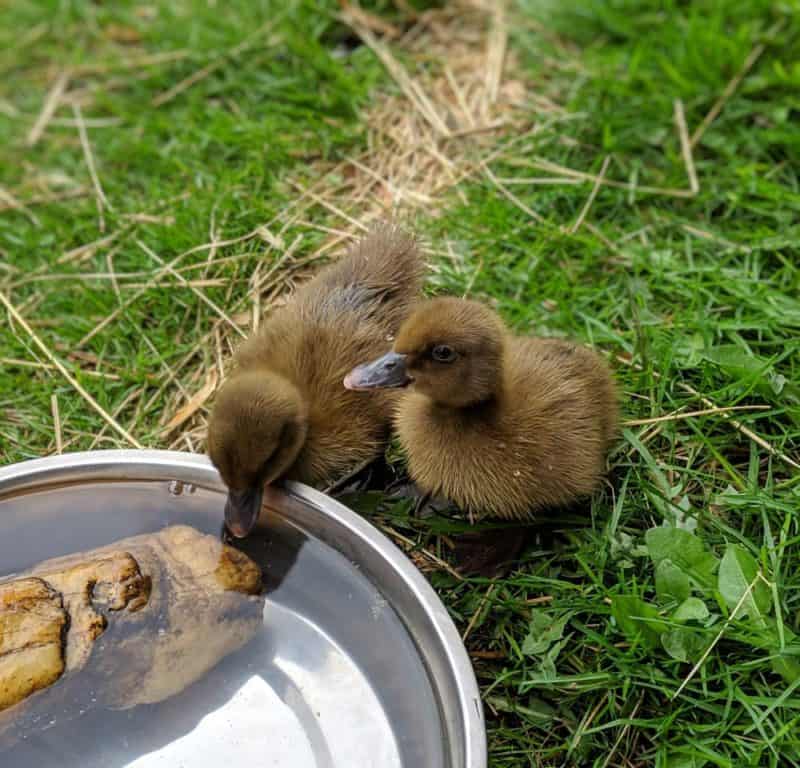
We raise Pekin Ducks. I adore them and wouldn't trade them for anything. I also have a Mallard in the mix as well.
The only drawback to ducks is that they eat a lot!
Don't let that scare you though because they eat a variety of foods that are very easy (and inexpensive) to come by. You can just browse through the list and see what is easiest for you to grow or buy and pick what works best for you and your feathered friends.
There's also the option to grow your own duck feed and we share a list of plants to grow for duck feed in another article.
1. Always Provide Fresh Water
This is such an important fact, that I have to share it up front.
While we all know that ducks love their water, it's actually important for their health to have access to water while eating food. Ducks have a habit of going back and forth between their food and water as they eat to keep their food moist to avoid choking.
No matter the age of your duck, always make sure they have water to dabble in while they eat their food.
2. The Importance of Niacin and Protein
While there are many important vitamins and minerals for all poultry, some are more important than others. Over time, some deficiencies or overdoses can cause serious health problems, and ducks are especially vulnerable to certain deficiencies.
Niacin
Niacin, or B3, is an essential nutrient for growing ducks to help grow strong legs and joints. When ducklings don't receive adequate amounts of Niacin, their health will rapidly decline and can lead to death. Symptoms of Niacin deficiency include lack of motivation or inability to walk along with failure to thrive.
Protein
Protein is another very important part of a growing duck's diet that can lead to health issues with too little or too much protein. Pay attention to the protein requirements for each of your duck's stages of life to help choose the correct feed. Too much protein can cause an issue called angel wing, where the feathers turn outward. The correct amount of protein will help a duck to grow at a strong and healthy rate.
What To Feed Ducklings
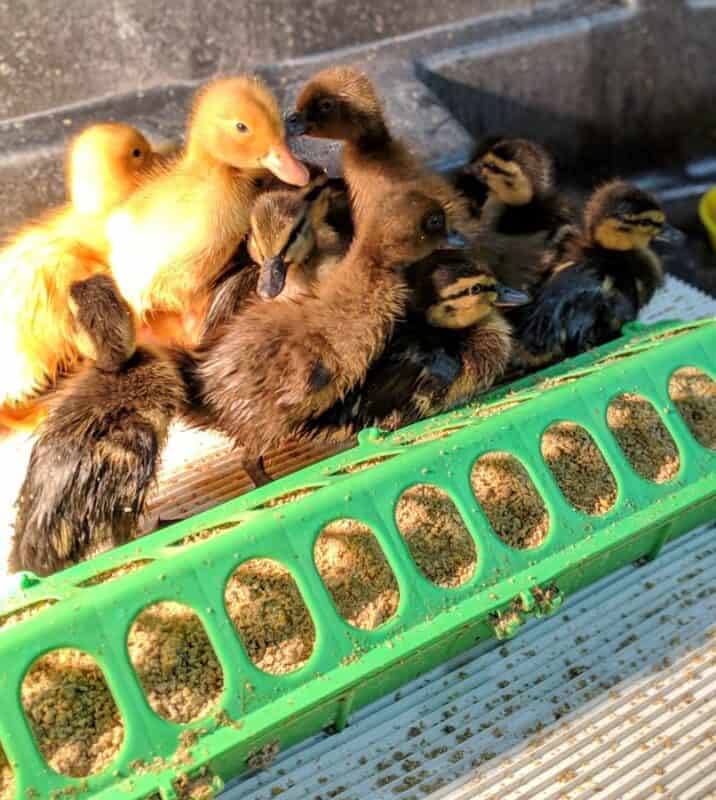
1. Feed Requirements
When you're feeding your ducklings, it can be difficult to find the perfect feed because not every feed store carries feed specially formulated for ducklings. As far as protein content goes, make sure that your chosen feed has a protein content of 20%.
2. Waterfowl Starter
If you can find waterfowl starter/crumbles, this is the ideal feed for your ducklings. Waterfowl feed will likely contain all the correct levels of protein, niacin, and other important nutrients and vitamins to grow healthy ducklings.
3. Chick Starter
Since many feed stores don't carry waterfowl starter, chick starter makes a decent substitute. However, it may be necessary to add brewer's yeast to your chick starter to provide the required amounts of niacin a duckling needs. If you're adding brewer's yeast to chick starter, a good rule of thumb is to add 2-3 cups of brewer's yeast for every 10 pounds of food.
There has been a decent bit of controversy over feeding ducklings medicated chick starter vs unmedicated chick starter. Some farmers have discovered that feeding medicated chick starter doesn't have any adverse effects. If an unmedicated starter is available, it is preferable for your ducklings simply because the amprolium is unnecessary for a duckling's diet.
If these rumors are a concern to you, read our post where we evaluate the question of feeding ducklings medicated chick starter.
What To Feed Juvenile Ducks
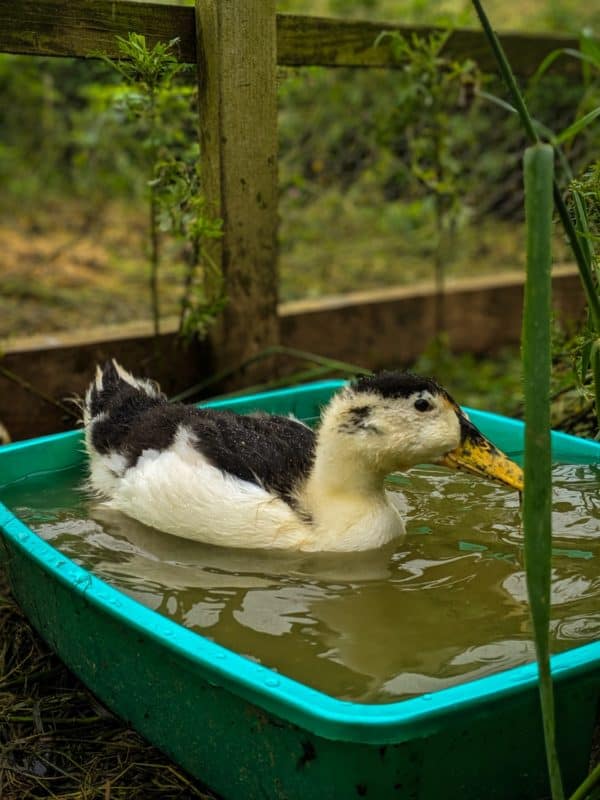
1. Feed Requirements
Once your ducks have grown past the tiny duckling stage, they'll slow down growing just a tad. By now, it's best to switch to a feed with slightly lower protein content to avoid issues such as angel wing. At this stage, an appropriate amount of protein would be around 15%.
2. Flock Raiser
An appropriate feed for growing ducks is flock raiser, which is much easier to find than waterfowl starter in most cases. Flock raiser will meet all the necessary requirements for growing ducks without any added supplements.
What To Feed Adult Laying Flocks
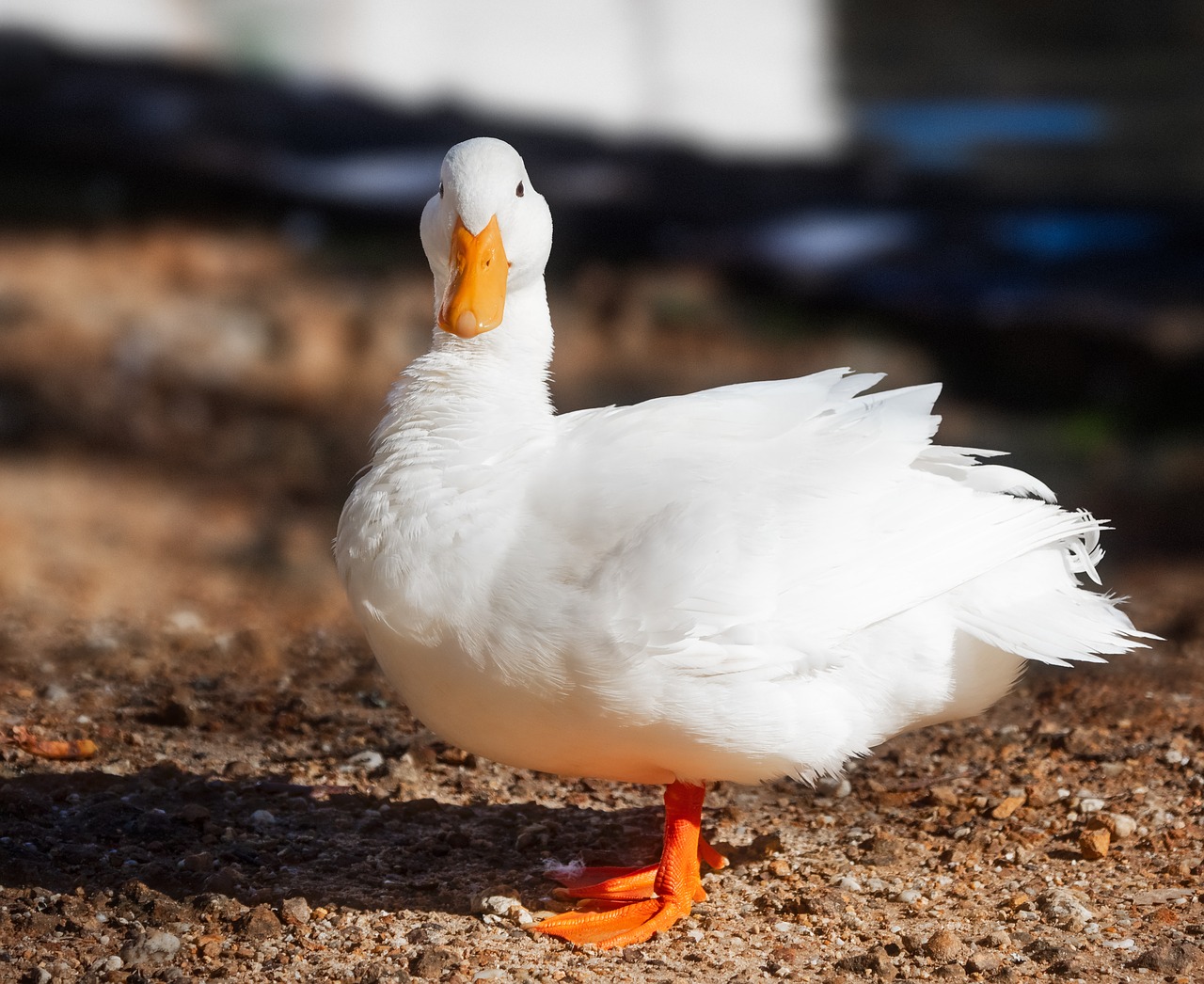
1. Feed Requirements
When it comes to feeding a healthy laying flock, you'll need to feed your ducks a diet to support laying healthy eggs and maintain vigor in your birds.
Your laying feed should have approximately 16-17% protein to meet your duck's needs. Calcium supplements may also be necessary if you notice consistent poor eggshell quality.
2. Laying Feed
Most feed stores carry a well-balanced feed for waterfowl egg layers to make sure they get all the necessary requirements for their diet. However, if you can't find waterfowl feed, chicken laying feed is sufficient for a duck flock.
What To Feed Broiler Ducks
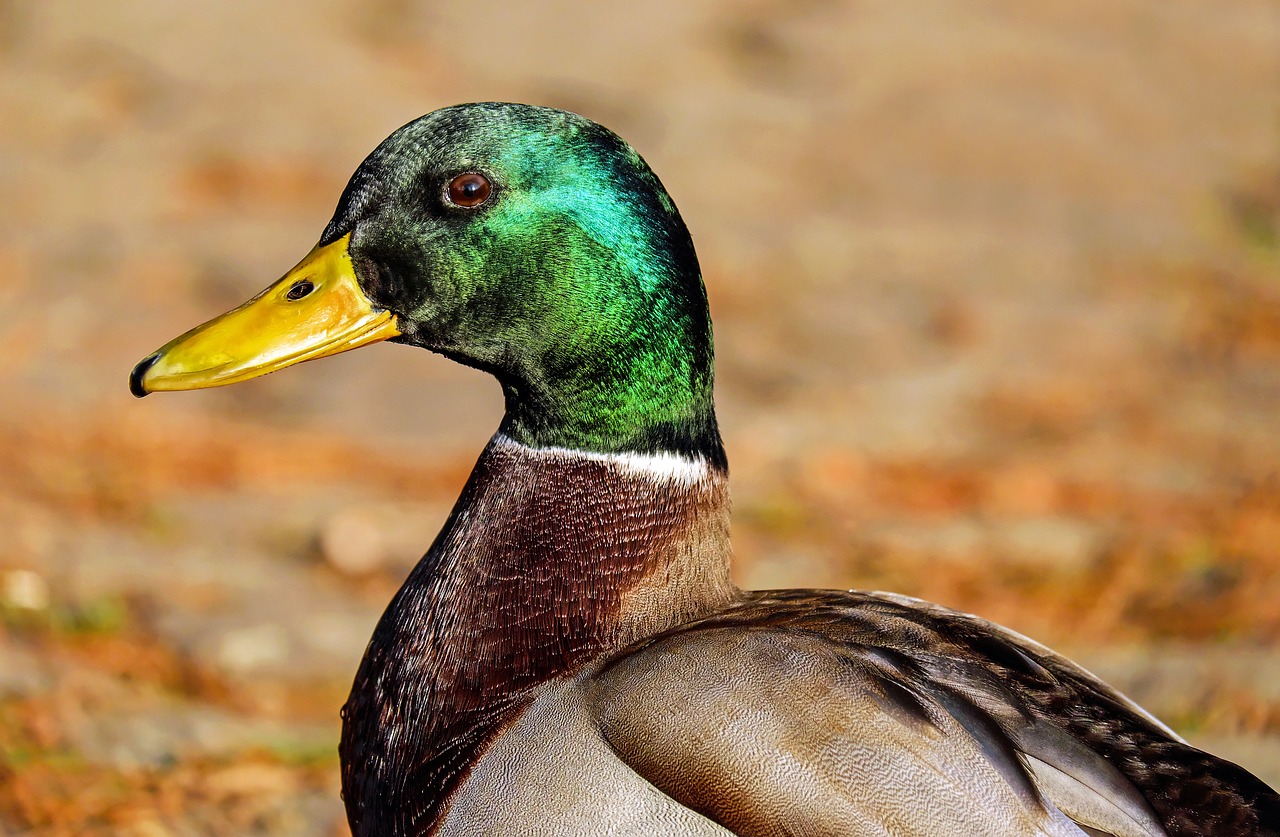
1. Feed Requirements
When it comes to raising ducks for meat, they will often get placed on a higher protein diet. A diet with higher protein isn't sustainable for most ducks, but it works for broiler ducks with a shorter lifespan.
2. Broiler Feed
Broiler feed for your meat ducks should have a 20% protein content to support rapid growth in your ducks. Higher protein feeds work just fine for ducks such as Pekin, which already grow much faster than most egg laying duck breeds.
Snacks And Treats For Ducks
Besides feeding your ducks store-bought food, you can also spoil them with a variety of snacks and treats that they will love.
Your ducks are big eaters so they'll love the snacks. The only guideline you'll need to follow is: be sure that snacks take up no more than 10% of their diet.
However, green snacks like weeds, kale, cut grass, etc. can be given in an unlimited amount. Your ducks love them, and they are great for them as well.
1. Bugs
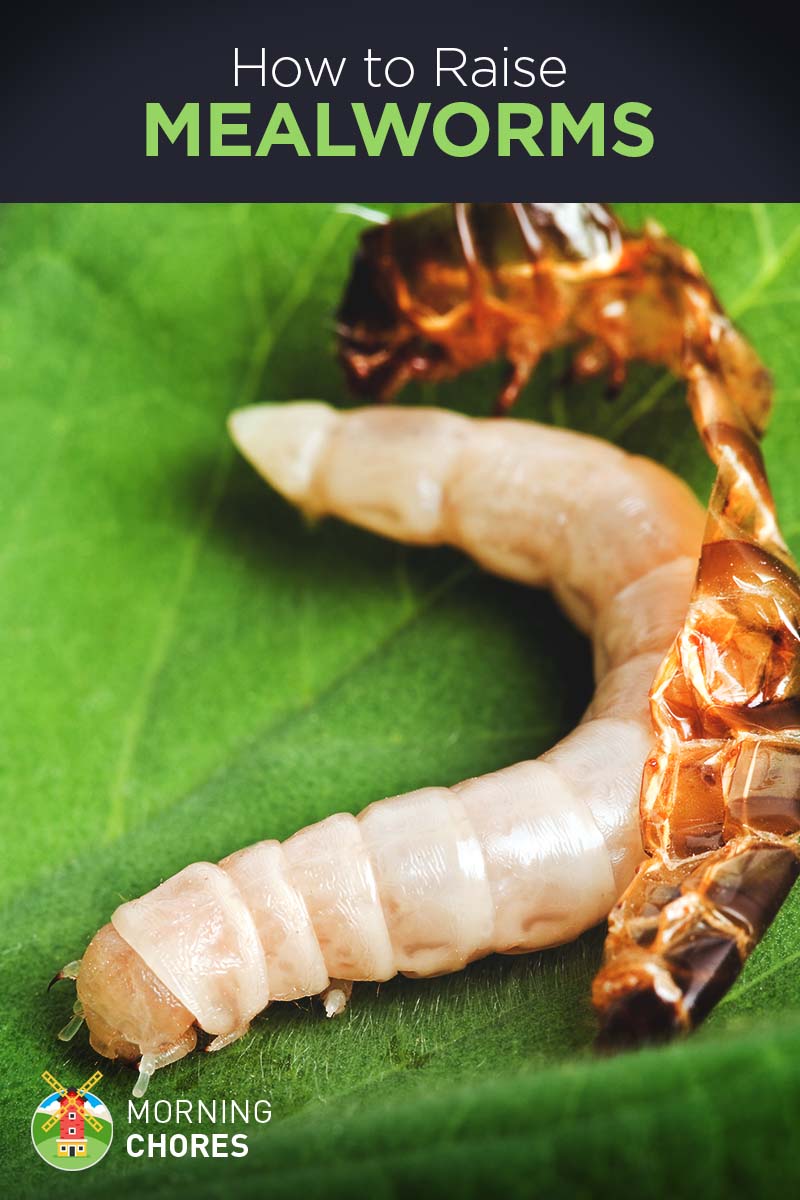
Let's not forget that ducks love bugs. They are not picky.
You can bring them any kind of insect, nightcrawler, worm, or mealworm and they will be happy.
The great thing about bugs is that you can actually raise them yourself and not have to pay for them. You can raise your own mealworms (as we do) right in your own living room. And you can raise your own red worms as well.
So whichever worm strikes your fancy to raise, raising worms will save you money, and your ducks will love them.
Another benefit of having ducks is you can allow them to scratch around in your garden, which will fertilize it, while they find grubs to eat.
2. Fruit
Ducks love fruit. Watching them eat it is pretty comical as well. Any extras from your berry patches or orchards can be tossed their way. They will gladly accept it.
Fruits such as berries, melons (ducks love watermelon rind), seeded fruits, and pit fruits absolutely make their day. Watching a duck eat a strawberry will make your day too. So go ahead and toss them your leftovers or items that are a little too ripe for you.
It is a wonderful treat to them.
3. Vegetables
Your ducks will enjoy seconds from your garden or even if you just have too much of some things growing in your garden.
We do that every year. We'll plant too much of something and by the end of the season, I am so sick of canning it. That is where my ducks come in handy.
I can feed it to them and not feel bad because I'm not wasting it. I'm actually saving on their feed bill.
Vegetables like cucumbers, peas, squash, zucchini, corn, kale, or broccoli your ducks will gladly take off of your hands.
4. Whole Grains
Ducks love grains. However, you need to make sure that you feed them only whole grains otherwise they'll pack on too much weight.
Ducks gain weight very easily (I have that in common with them.) So you have to make sure that you give them healthy options so their snacks don't go straight to their tail feathers.
Snacks like brown rice, quinoa, oats, and whole wheat bread will absolutely make their day.
5. Protein food
I already mentioned that bugs could and should be a part of their regular diet. However, snacks high in protein are a great option as well.
When I was researching snacks high in protein for ducks I laughed when the most obvious answer flew up in front of my face—scrambled eggs. It seems kind of odd to feed scrambled eggs to an animal that lays eggs, but many people claim that their ducks love them.
I'm in the middle of a rainstorm now, or I'd be making some for my ducks and taking it to them to see how much they love them. That is on the list of things to do tomorrow.
Anyway, if you have too many eggs (as many of us do during the warmer months) don't let them go to waste. Just scramble them up for your ducks.
Food Supplements For Ducks
Ducks are very simple animals for the most part. They eat a lot but love a variety of things to eat. That makes feeding them easy enough.
They are hearty animals, love to lay eggs, and don't require much else outside of a shelter and fresh water.
When I mention food supplements, don't be alarmed that there aren't many and they are all simply suggestions and by no means a necessity.
1. Grit

If your ducks are anywhere that they have access to dirt then they probably will not need grit. They have a way of finding small pebbles in the dirt and eating them to help grind up their food.
But if your ducks are in solid grass, or you don't feel like there is enough rocky soil in their area just purchase a bag of grit to be sure.
You will need to throw a handful or two in their area once a week. This will ensure that their food will be digested as it should be.
You can purchase your grit here or at your local farm supply store.
2. Oyster Shell
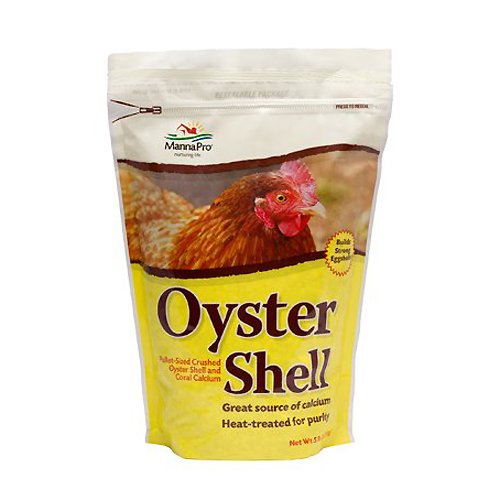
Okay, so you feed your ducks a well-rounded diet. Yet, their eggs are still coming out pitted or thin-shelled. You will need to add oyster shell to their diet for added calcium to strengthen their shells.
It can be purchased here or at any local feed store, usually. A small handful of this added to their daily feed, and you will have strong eggs in no time.
What You Should Not Feed Your Ducks
There are actually quite a few items that you shouldn't feed your ducks. If you decide to give snacks you need to be aware of this list.
So please do not feed your ducks:
1. Citrus fruit
Citrus fruit can interrupt a ducks' ability to absorb calcium. This can cause thin-shelled eggs which are not good if you enjoy their eggs.
2. Spinach
Spinach is in the same boat as citrus fruit. It too interferes with their calcium absorption which in turn makes for thin shelled eggs.
3. Iceberg lettuce
If you feed them iceberg lettuce in small amounts it is okay. However, too much can give them diarrhea which throws their whole bodies off. So give this food with caution.
4. White Potatoes, Green Tomatoes, and Purple Eggplant
These are all part of the nightshade family. So, unfortunately, all parts of these plants (stems, leaves, and fruits) are extremely toxic to ducks.
5. Raw, Dried Beans
If you want to give your ducks beans, be sure they are fresh or sprouted. If you try to feed them raw or dried beans, it is toxic to them.
Just remember when feeding your ducks, it is better to be safe than sorry. So when in doubt do a little research.
How To Feed Your Ducks
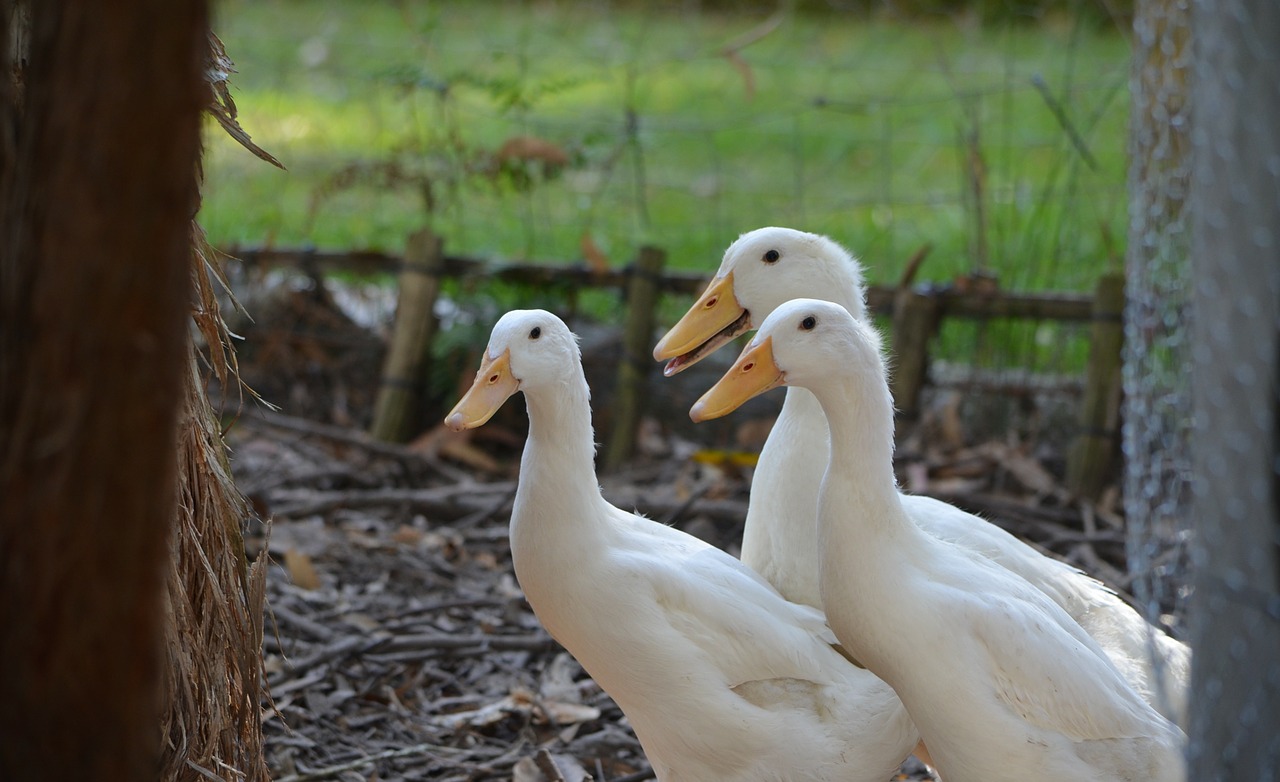
Ducks are big eaters but are very easy to care for. They don't require much special equipment and can usually be fed once a day.
When feeding your ducks, I think it is best to give them free choice so they can pick and choose what they want, when they want.
Now, ducks are big eaters so I actually feed my five ducks through an automatic feeder for their corn. I also give them a 5-gallon bucket of weeds per day. And they are in a shaded, wooded area so they have lots of bugs to choose from on their own.
Most people usually give their ducks two cups of food per duck about once or twice a day. You'll know by watching them if they are still hungry. Believe me, when they are hungry they will quack loudly to let you know.
Mine are so spoiled that if I'm out in the garden weeding and they think I've cheated and given the chickens more, they begin to quack and tell me about it.
Now, here are the only two items you will really need in order to properly feed and water your ducks.
1. Poultry Feeder
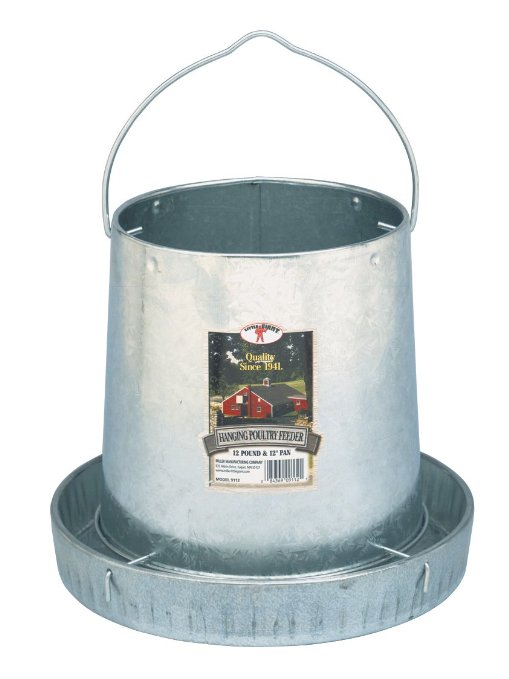
This poultry feeder can be filled up and that way you can simply refill when empty. No worries about underfeeding your ducks.
It is also great because it is harder for the ducks to make a mess with their food in this type of feeder.
So it works well all the way around.
2. Poultry Waterer
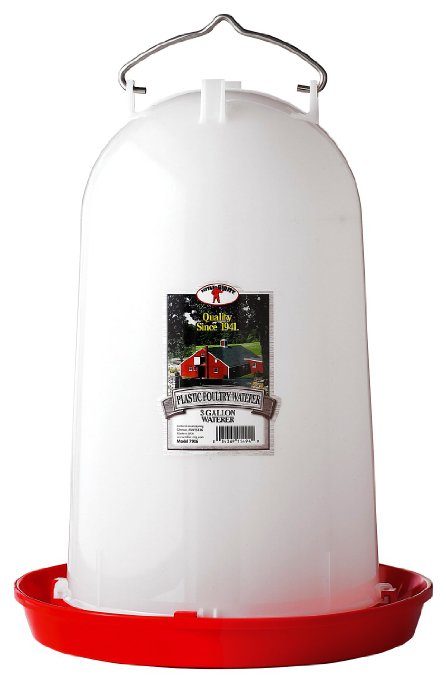
You have multiple options for this. You can purchase a poultry waterer (preferably the largest one they have because ducks drink a lot.)
Or you can also make a poultry waterer. This is actually a really cool idea because they can't climb in and try to swim in it. Believe you me, if they can get into water, they will do it. This will help keep their water a little cleaner which means less waste and less extra work for you.
That is all there is to feeding ducks.
It seems rather simple, doesn't it? Well, it's because it is. They are a joy to have around the farm and don't cause much trouble.
Was this article helpful?
Yes No
Source: https://morningchores.com/feeding-ducks/
Post a Comment for "Can You Feed Ducks Ground Beef"